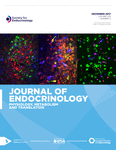IGF2: an endocrine hormone to improve islet transplant survival
- Amy Hughes1,2,
- Darling Rojas-Canales2,5,
- Chris Drogemuller2,3,4,5,
- Nicolas H Voelcker5,6,
- Shane T Grey7⇑* and
- P T H Coates2,3,4,5,8⇑*,†
- 1Department of Physiology and Biophysics, University of Illinois at Chicago, Chicago, Illinois 60612, USA
2The Centre for Clinical and Experimental Transplantation (CCET)
3Australian Islet Transplant Consortium, The Royal Adelaide Hospital, Adelaide, South Australia 5000, Australia
4School of Medicine, University of Adelaide, Adelaide, South Australia 5000, Australia
5Cooperative Research Centre for Cell Therapy Manufacturing (CRC-CTM), Mawson Lakes, South Australia 5095, Australia
6Mawson Institute, University of South Australia, Mawson Lakes, South Australia 5095, Australia
7Gene Therapy and Autoimmunity Group, Immunology Program, Garvan Institute of Medical Research, Darlinghurst, New South Wales 2010, Australia
8Centre for Stem Cell Research, University of Adelaide, Adelaide, South Australia 5000, Australia
- Correspondence should be addressed to S T Grey or P T H Coates; Email: s.grey{at}garvan.org.au or toby.coates{at}health.sa.gov.au
Abstract
In the week following pancreatic islet transplantation, up to 50% of transplanted islets are lost due to apoptotic cell death triggered by hypoxic and pro-inflammatory cytokine-mediated cell stress. Thus, therapeutic approaches designed to protect islet cells from apoptosis could significantly improve islet transplant success. IGF2 is an anti-apoptotic endocrine protein that inhibits apoptotic cell death through the mitochondrial (intrinsic pathway) or via antagonising activation of pro-inflammatory cytokine signalling (extrinsic pathway), in doing so IGF2 has emerged as a promising therapeutic molecule to improve islet survival in the immediate post-transplant period. The development of novel biomaterials coated with IGF2 is a promising strategy to achieve this. This review examines the mechanisms mediating islet cell apoptosis in the peri- and post-transplant period and aims to identify the utility of IGF2 to promote islet survival and enhance long-term insulin independence rates within the setting of clinical islet transplantation.
- Received in final form 5 February 2014
- Accepted 11 February 2014
- © 2014 Society for Endocrinology











